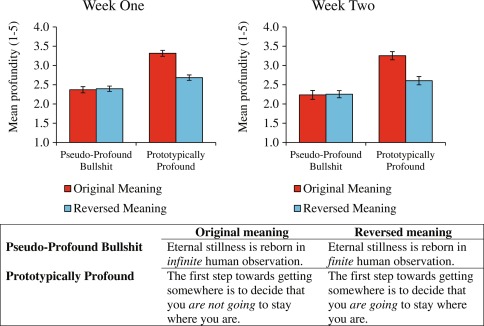
## The Psychology of Belief Superiority: How Perceiving Your Views as Absolute Truth Can Foster Overconfidence
Have you ever found yourself in a discussion with someone who is completely convinced that their viewpoint reigns supreme? Or perhaps, in certain discussions, you’re the one staunchly believing that your stance is not just correct but evidently superior to everyone else’s. This prevalent human tendency to assume that our own opinions are not merely valid but of greater worth than those of others is central to an intriguing psychological concept known as “belief superiority.”
### Understanding Belief Superiority
At the essence of belief superiority lies the assurance that your own thoughts and opinions are more accurate than those of others—not just that you are right, but that others are fundamentally incorrect. It transcends mere confidence in one’s understanding; it embodies the idea that your perspective is inherently elevated, irrespective of contrary viewpoints.
Michael Hall and Kaitlin Raimi, psychologists aiming to investigate how belief superiority influences cognitive functioning, executed a series of experiments to explore its consequences. Their findings, published in the *Journal of Experimental Social Psychology*, illuminate how this attitude may impact an individual’s perception of reality—specifically regarding their capability to evaluate their knowledge with precision.
### Belief Superiority and the Dunning–Kruger Effect
Hall and Raimi’s investigation ties into a related phenomenon you may be familiar with: the **Dunning-Kruger effect**, which depicts how individuals with lesser competence in a subject tend to greatly overrate their abilities. However, belief superiority introduces a nuanced variation to the Dunning-Kruger narrative.
In the Dunning-Kruger scenario, ignorance is the main factor driving overconfidence; individuals simply lack the insight to acknowledge their deficiencies. With belief superiority, on the other hand, there’s a more intricate situation: it’s not just ignorance at work, but a deep-seated belief that other people’s opinions are incorrect. This firmly held conviction can obscure a person’s ability to recognize their own knowledge gaps.
### The Hall and Raimi Experiments: Investigating Overconfidence
Hall and Raimi’s experiments delved into how well-informed individuals believe they are when they regard their opinions as superior. A primary goal of their research was to determine whether those with high belief superiority are indeed better informed—or if they are merely overvaluing their knowledge while closing off avenues for learning or growth.
What did they discover? It turns out that those who perceived their opinions as superior were not necessarily more knowledgeable than their counterparts; rather, they demonstrated an unwillingness to pursue further understanding. In fact, these individuals were *more inclined* to exaggerate their expertise on a subject and resist constructive feedback that could enhance their knowledge. Their conviction in their own correctness acted as an obstacle to curiosity and intellectual development.
### The Double Trap: Overconfidence and Stagnation
One of the most profound implications of the belief superiority phenomenon is the dual trap it establishes. The combination of inflated perceptions of knowledge and an aversion to alternative viewpoints results in individuals with strong belief superiority not only being susceptible to overconfidence but also less inclined to seek new information. They effectively restrict potential avenues for growth and learning.
This creates a self-perpetuating cycle: believing one is right to the exclusion of others discourages self-reflection and learning from errors. Consequently, individuals with belief superiority lag in wisdom and understanding, broadening the chasm between how much they think they know and what they actually know.
### Societal Implications: The Social Divide Resulting from Belief Superiority
Beyond individual cognitive effects, the belief superiority dynamic sends out shockwaves on how we engage as a society. When individuals are excessively confident that their opinions are superior, we witness a decline in constructive dialogue, crucial for resolving disagreements and fostering mutual understanding.
This is particularly significant in today’s atmosphere of polarized politics, contentious social issues, and highly debated scientific questions (such as climate change or vaccine effectiveness). As belief superiority intensifies, so does the inclination for some to flatly reject opposing opinions, further entrenching societal divisions. If left unchecked, belief superiority can breed echo chambers, wherein individuals only interact with information that supports their established views, thus solidifying overconfidence in their knowledge.
### Strategies to Counteract Belief Superiority
While belief superiority may take root in many of us, there are strategies to counteract its cognitive pitfalls:
1. **Remain Open to Learning**: Make a deliberate effort to engage with new ideas with curiosity instead of judgment. Even when you feel strongly that your viewpoint is correct, there’s always an opportunity to gain new insights or comprehend opposing perspectives more deeply.
2. **Adopt Intellectual Humility**: Genuine wisdom often flows from recognizing your own knowledge limitations. Intellectual humility entails acknowledging that your understanding is incomplete while being receptive to expert opinions and differing views.
3. **Practice Active Listening**: Many people listen mainly to craft a response—not to genuinely understand. However, true learning arises from